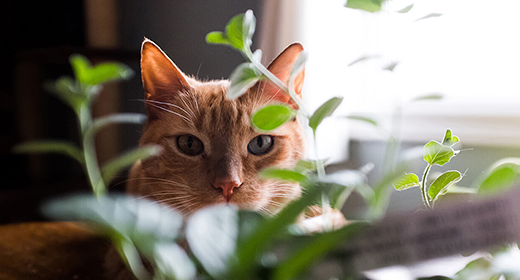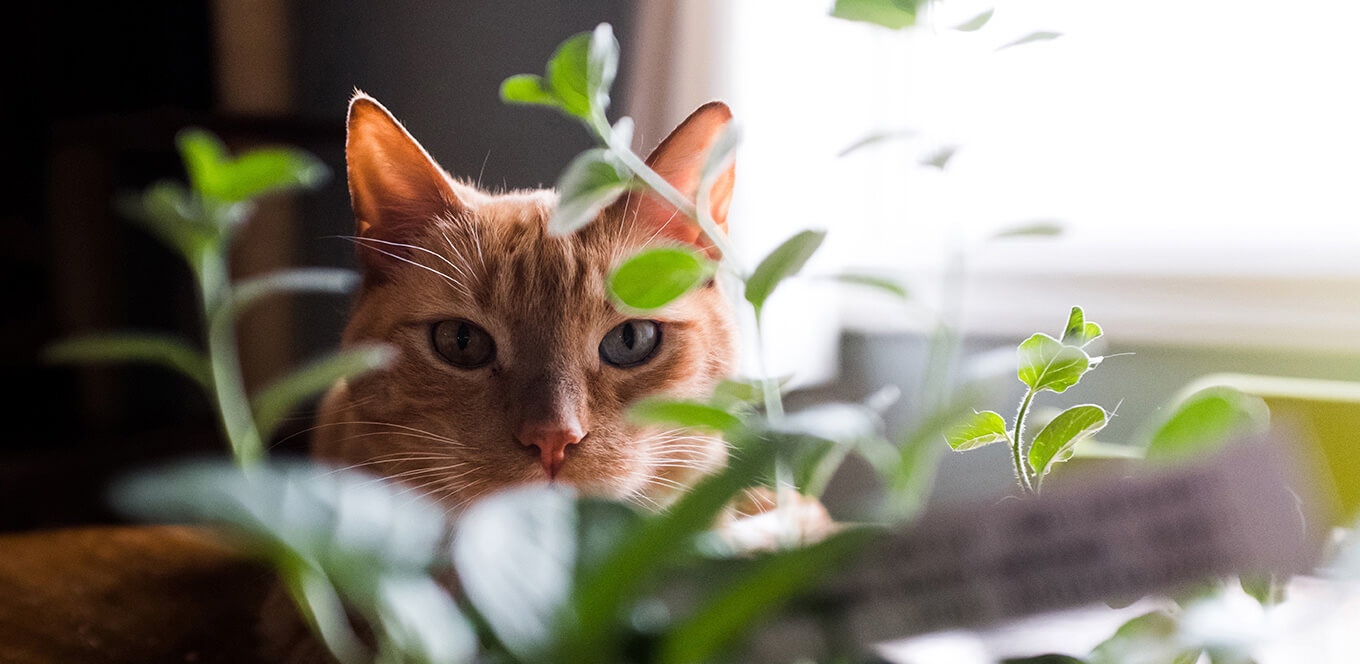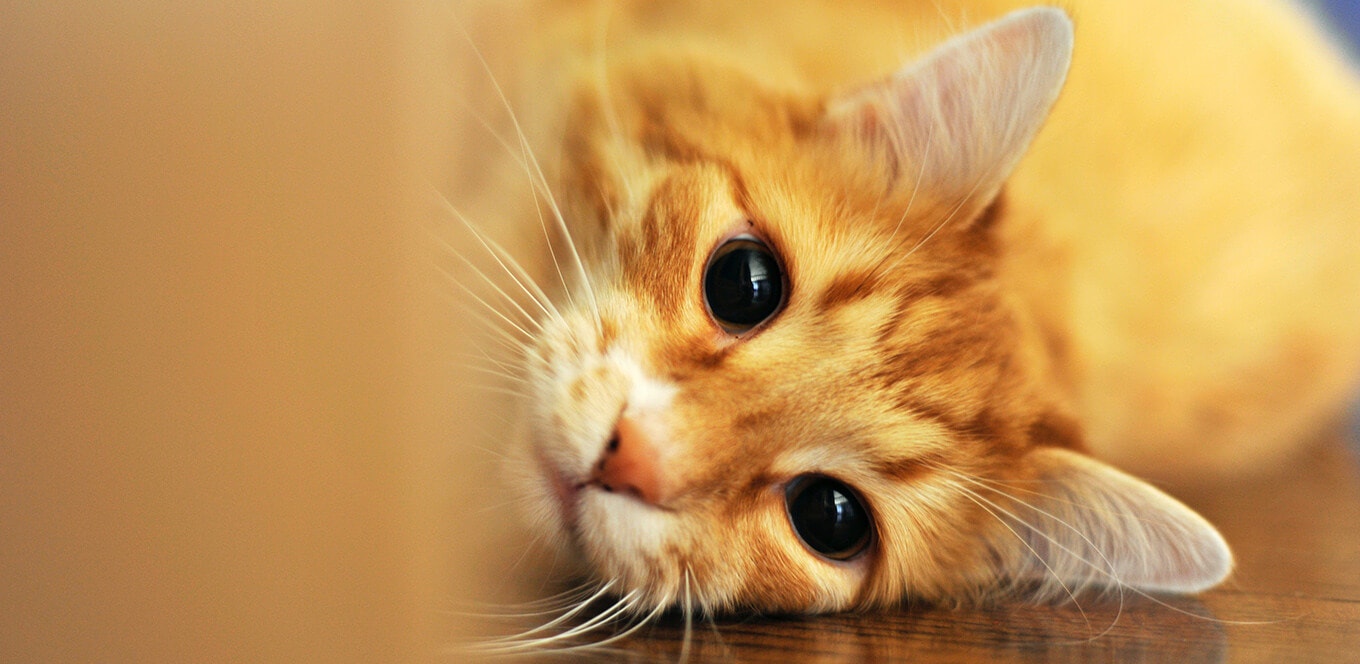

When a cat's body gets sensitive to its environment, it develops allergies. So, if you notice that your cat is feeling unwell and is constantly sneezing or scratching itself, it could be due to cat allergy reactions. These allergens are unpleasant substances that may or may not irritate you, but when your cat's body tries to rid itself of them, it may exhibit a variety of symptoms.
While it’s normal for cats to show different symptoms depending on the allergy, those that affect their breathing are the most serious ones. So, if your cat suffers from breathing issues due to allergies, it can take a life-threatening turn. Sometimes, the itchiness can also cause skin irritation leading your cat to chew on its paws or tail relentlessly.
Fortunately, cat allergy is treatable once the allergen affecting your cat is identified. Therefore, knowing how to detect if your cat has allergies and what’s causing these allergies can help you prevent problems in the future.
The first step toward treating your cat’s allergies is finding out what’s causing them. A visit to the veterinarian is the simplest way to identify your cat’s allergy stimulus.
Causes of cat allergies could be due to several reasons, all of which fall under one of the three categories. These categories are, namely – flea allergy, food allergy, and environmental allergy (atopic dermatitis).
One of the most common cat allergy signs is flea allergies. These allergies are generally caused by flea bites or flea treatment medicine. Excessive itching is the most predominant symptom of this type of allergy. It's likely that your cat is allergic to fleas if you find it scratching or frequently chewing on its fur, especially directly above the tail.
Food allergies in cats can cause vomiting, diarrhea, and even itchy skin, especially around the neck and head. This type of allergic response might cause your cat to shed patches of fur in severe circumstances. In such extreme cases, your vet can help you detect which foods are causing irritation and develop an appropriate diet for your cat.
Environmental allergies may have different triggers, including plants, pollen, and mold. This type of allergy can also be induced by cleaning products, or the fragrance included in some types of cat litter. Another type of environmental allergy is feline atopy. It is commonly known as feline atopic dermatitis, a severe allergic reaction in cats that causes extreme itchiness in their skin. As a result of this condition, your cat may suffer from skin soreness, redness, scabbing, and even hair loss.
Depending on the kind of allergy your cat has, symptoms can range from unpleasant to life-threatening.
Diarrhea is frequently related to staining of the fur around the hind end in some breeds. In normal cats, you can observe some variation in the consistency of their stool. Dietary changes can also cause temporary changes in their stool. But, if you notice frequent semi-liquid or liquid stools for more than two days, you should consult your vet.
There are different causes to why a cat makes a wheezing sound. It could be due to a hairball stuck in its stomach or allergens like pollens, mold, or cigarette smoke. However, this wheezing sound can also be linked to discomfit or stress. Because each cat's triggers are unique, it's critical to be aware of the surroundings and activities in your cat's environment that could be causing stress-related wheezing.

Watery or glossy-looking eyes are other prominent cat allergy signs. While a cat's moist eyes maybe caused by allergens such as mildew dust or household cleaning products, it could also indicate something more serious, such as a bacterial illness or virus.

Itchiness or skin redness in cats is associated with a skin condition called cat dermatitis. When this happens, your cat’s skin becomes swollen, red, and irritated, often with small blisters, as a result of an external agent directly irritating the skin or causing an allergic reaction to it.

If your cat is suffering from moderate allergy symptoms with only limited itching, medicated shampoos or rinses can help.
Anti-itch and anti-inflammatory medicines such as corticosteroids are particularly effective in treating extreme itchiness in cats. When used correctly, they can be quite safe and effective in cats. Consult your vet to identify the best course of action.
Treating your cat with flea preventatives will prevent your cat from being bitten by fleas. Plus, to lessen the chances of your cat being bitten, you should treat your home during the warmer months when fleas are more frequent. In fact, even cats who aren't allergic to fleas should use a flea preventative to avoid tapeworm and other flea-related illnesses.
To figure out which food is causing your cat's allergies, you must first put it on an elimination diet. After that, gradually reintroduce food items until you find the problematic allergen. The top three allergenic protein sources are beef (18%), fish (17%), and chicken (5%). Avoiding these foods will enable your cat's allergic reaction to be less severe.
The most common allergy symptoms in cats are skin reactions, regardless of the cause, and they can appear at any age. Just because your cat didn’t have allergies as a kitten doesn’t mean she won’t have them as an adult. If your cat suffers from any of the following symptoms, take her to the vet for a consultation:
Allergies can vary from cat to cat, so it is important that you work with your vet to make sure your cat gets the best possible treatment. You’ll both be happier as a result.


Cats are sensitive to a wide range of allergies. Cats, like people, can be allergic to a variety of foods, drugs, plants, and other things. However, flea, environmental, and/or food allergies are the most common allergies in cats.
Keeping your home clean, using dust-free and unscented cat litter, using flea preventatives regularly, avoiding excessive fragrances, and not smoking in the house can help keep your cat from being allergic.
If your cat suffers from allergies, some of the most frequent allergic reactions will trigger certain behaviors, conditions, and even symptoms like:
It depends on whether your cat has skin or food allergies. If your cat eats nothing but novel food and water for eight to ten weeks, the allergic symptoms in its skin will fade away. But if it is related to food allergies, then you need to find a diet that works for your cat and stick to it.
Most cats with inhalant allergies are allergic to a variety of allergens. Itching may only persist just several weeks at a time during one or two seasons of the year if the number of allergens is low and seasonal. The cat may scratch frequently if there are a lot of allergens or if they are there all year round.


If you have ever indulged in a delicious piece of roasted chicken and noticed your furry friend giving you those irresistibly adorable, pleading eyes, you have probably wondered, 'Can cats eat chicken?'.
Chicken is a good source of protein, and you will find it as an ingredient in many commercial cat foods. However, there are some guidelines to follow. In this blog, we will uncover the delicious details about whether chicken is a friend or foe to our beloved furballs.
Is chicken good for cats? Well, when it comes to feline nutrition, chicken is often regarded as a favourite among our furry companions. Cats are obligate carnivores, which means that animal protein is essential for their overall health. Chicken, a lean and readily available source of protein, can offer several health benefits to your feline friend:
Chicken is a superb source of high-quality animal protein, which is essential for your cat's muscle development, growth, and overall body maintenance. Protein aids in tissue repair and supports a healthy coat.
Chicken is rich in essential amino acids, such as taurine, which is vital for cats. Additionally, taurine deficiency can lead to severe health issues, including heart problems and vision impairments.
Chicken contains essential vitamins and minerals like vitamin B6, niacin, phosphorus, and selenium. These nutrients contribute to your cat's overall well-being and help maintain a strong immune system.
Chicken has a naturally high moisture content, which can help keep your cat hydrated, especially if they are reluctant to drink water. Proper hydration is crucial for kidney health.
Most cats find chicken incredibly tasty, making it an excellent option for enticing picky eaters or cats with a diminished appetite.
While chicken can provide numerous health benefits to your cat, it should always be offered in moderation and as part of a balanced diet. Consult your veterinarian for guidance on the appropriate portion sizes and to ensure that chicken complements your cat's dietary needs.
If you have ever wondered whether it is safe to feed your cat raw chicken, be aware that it poses significant risks. Raw chicken, like other raw meats, can be contaminated with harmful. These pathogens can lead to severe gastrointestinal issues, including vomiting, diarrhoea, and even food poisoning in both cats and humans.
Additionally, when feeding your cat raw chicken increases the risk of nutrient imbalances and deficiencies, as it may lack essential nutrients that are destroyed during cooking.
To ensure your cat's safety, it is best to cook chicken thoroughly. Cooked chicken eliminates the risk of bacterial contamination and provides a safer and more digestible option for your feline friend.
Chicken bones, especially small and brittle ones like those in wings or drumsticks, can pose serious health risks to cats. Unlike dogs, cats have a more delicate digestive system and cannot process bones safely. When cats chew on or swallow bones, they can:
Small bones can get logged in a cat's throat, causing choking, gagging, or even airway obstruction.
Chicken bones can splinter into sharp pieces, which may damage a cat's mouth, throat, or digestive tract.
Bone fragments can create blockages in the gastrointestinal tract, leading to painful and life-threatening conditions.
Sharp bone fragments can puncture a cat's intestines or stomach, causing internal injuries and infections.
To keep your cat safe, always remove bones from chicken before offering it to them. Offer boneless, cooked chicken as an occasional treat, but ensure that it is free of seasonings, spices, and any potentially harmful ingredients.
Cats are known for their carnivorous cravings, but before you toss that raw chicken their way, hold your whiskers! While it might seem like a natural choice, there are some serious risks involved. Let's take a bite-sized look at what you need to know.
Raw chicken can be a breeding ground for nasty characters like Salmonella and Campylobacter. These troublemakers can cause a real bellyache for both your cat and you. Even if your feline friend does not show symptoms, they could pass these pathogens along to you, especially if you have got a delicate immune system. A real 'no-thank-you' dish!
Cooked or uncooked chicken bones can splinter into shards of trouble. These bone bits can wreak havoc on your cat's insides, causing choking, punctures, or blockages. To stay on the safe side, opt for boneless chicken or consider a vet-approved alternative.
Chicken is a protein powerhouse, but it is not the only game in town. Feeding your cat only raw chicken could lead to a dietary disaster. It is missing some crucial nutrients that your feline friend needs for a balanced diet. To keep their tails wagging, consult with a vet or feline nutrition guru to whip up a menu that is both tasty and nutritious.
When it comes to preparing raw chicken for your feline companion, a few key considerations can make all the difference in ensuring a safe and healthy meal:
Freshness is paramount. Check the sell-by date, and inspect the chicken for any signs of spoilage, such as an unusual odour or discoloration. Cats, like us, prefer their meals fresh and free from any hints of spoilage.
Handle raw chicken with care. Ensure your cutting board, knives, and utensils are clean and sanitized to prevent cross-contamination. Keeping a dedicated cutting board for cat food prep can help maintain hygiene.
Rinse the chicken thoroughly under cold water to remove any debris and pat it dry with a clean paper towel. This step helps minimise the risk of bacterial contamination, keeping your cat's meal safe and healthy.
While chicken can offer benefits to cats, it is important to remember a few key points. Always opt for cooked, boneless chicken in moderation, as raw chicken carries health risks due to bacterial contamination and nutrient imbalances. Furthermore, never offer chicken bones to cats, as they can be harmful.
Prioritising freshness and maintaining proper hygiene when preparing chicken for your cat is essential to ensure its safety and well-being. If you have any doubts or need guidance, consulting a veterinarian or a nutrition expert can help you provide a balanced and secure diet for your feline friend. Moreover, to avoid any safety and dietary concerns, why not go for IAMS cat food? With chicken as the first ingredient, our range of cat food is developed to meet your cat’s day-to-day nutrition quota.